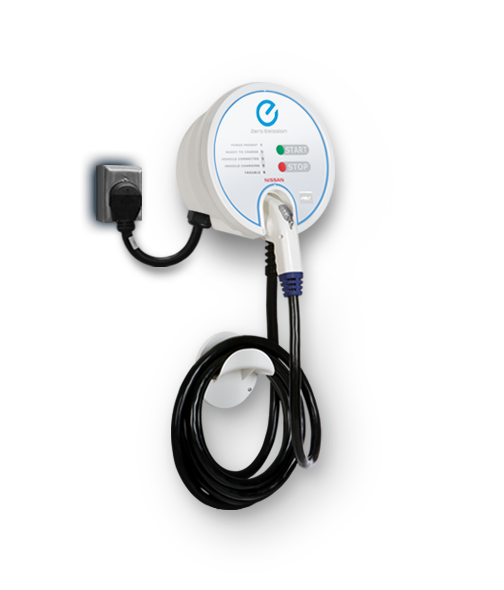Personally I'd suggest upgrading your stock EVSE(charger is the part in the car, the thing you plug into the car is called EVSE) to 20a by evseupgrade.com and carry that around and also purchase a 24a+ EVSE for your home. That way you have more options for charging on the go and also have the ability to recharge at the fastest rate you can at home. I'd also suggest something like a Juicebox or another EVSE that can be dialed down to 24a for now(if you indeed have only a 30a circuit) and would allow you to max out your Leaf at 27.5a on a 40a circuit.
Of course if your looking for the lowest initial cost and your OK with the little bit slower charging a 20a charge will give you, and your OK potentially taking the EVSE out of your car every night, for ~$300 and you'd be set with the evseupgrade.com option, it's up to you.
Myself I don't care to be frequently taking my evesupgrade'd EVSE out of the car and uncoiling it only to have to put it away the next time I drive my car(I wouldn't think of driving around without carrying one for an emergency) so I like the idea of a dedicated EVSE for at home, again you may feel different

Your cheapest option for a dedicated home EVSE that could be dialed down would probably be the GE Durastation, often times available on Amazon for $399, if you wanted it to plug in as apposed to being hard wired, you'd have to add the plug yourself(or hire an electrician).
Again most of the time it's $399 at Amazon, occasionally I see it for as much as $599.....Amazon has such crazy pricing :?
http://www.amazon.com/GE-Charger-Outdoor-Level-2-DuraStation/dp/B00VVFO39W/ref=sr_1_2?s=automotive&ie=UTF8&qid=1461184178&sr=1-2&keywords=level+2+ev+charger
So if you went with the Durastation and evseupgrade.com you'd have about $700 in EVSE's and maybe a bit more for plugs, which are also best to get on Amazon or evseupgrade.com, B&M stores are crazy expensive for heavy duty or locking plugs/receptacles.

